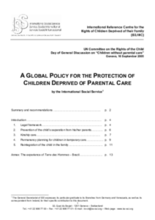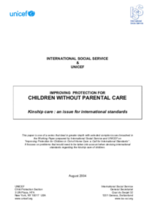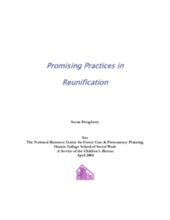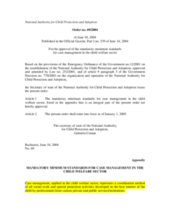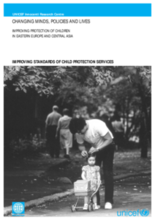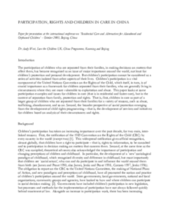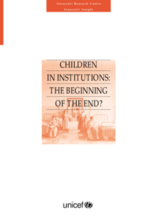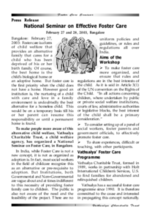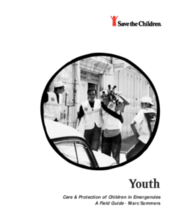Displaying 221 - 230 of 233
Serves as an example of fostering service standards from the perspective of children, birth families, and foster caregivers
This paper presents a set of global policy guidelines for the protection of children without parental care. It recommends the need for a global understanding of best practices within the legal framework of the UN Committee on the Rights of the Child.
Outlines problems and issues in providing appropriate out-of-home care solutions. Advocates for development of more comprehensive international standards for out-of-home care.
A list of US programs and program approaches that influence family reunification outcomes. Relevant for social workers, policy-makers, and others involved in foster care, after care, and family reunification.
Outlines the minimum standards for child welfare case management in Romania.
Contains practical tools and policy guidance for family and child welfare policy makers and practitioners. Relevant topics include gatekeeping, redirecting resources into preventive and family based services, and standards of care.
This paper defines concepts and highlights key topics around orphaned and vulnerable children. It stresses the importance of creating a child-friendly environment and utilizing a holistic approach to care, both which identify children as central participants in decision-making about care and placement.
This publication provides an account of historical processes in Spain and Italy which have led to a transformation of social child protection policies and an abandonment of the most widely-used mechanism of social exclusion, namely institutionalization.
Explores temporary foster care as an alternative to institutionalization in India. Emphasis on analyzing and reforming guidelines for foster care.
An overview of the key challenges surrounding youth in crisis and the framework for dealing with these issues based on Save the Children principles in youth programming. Includes detailed examination of international programming examples.


